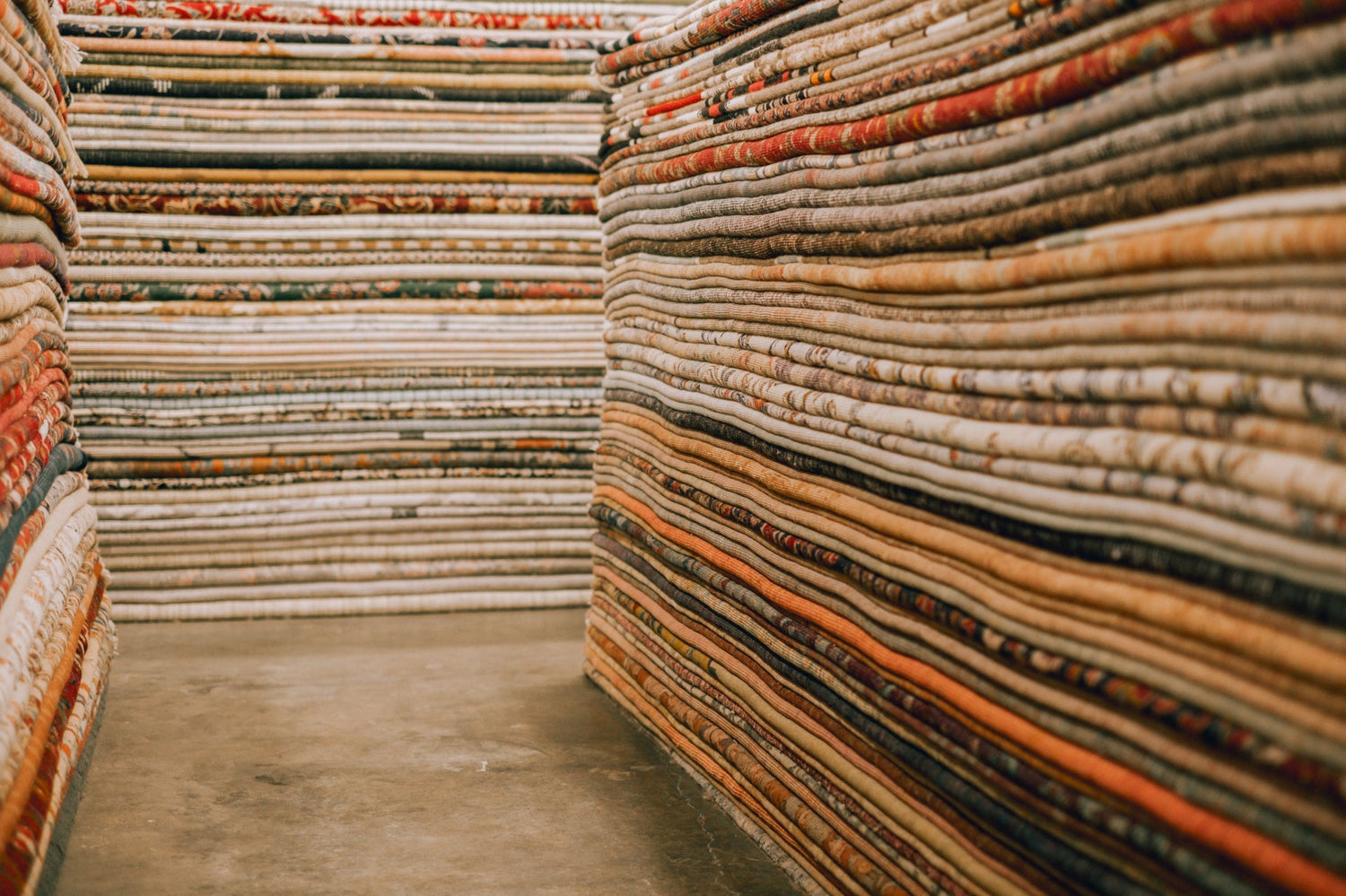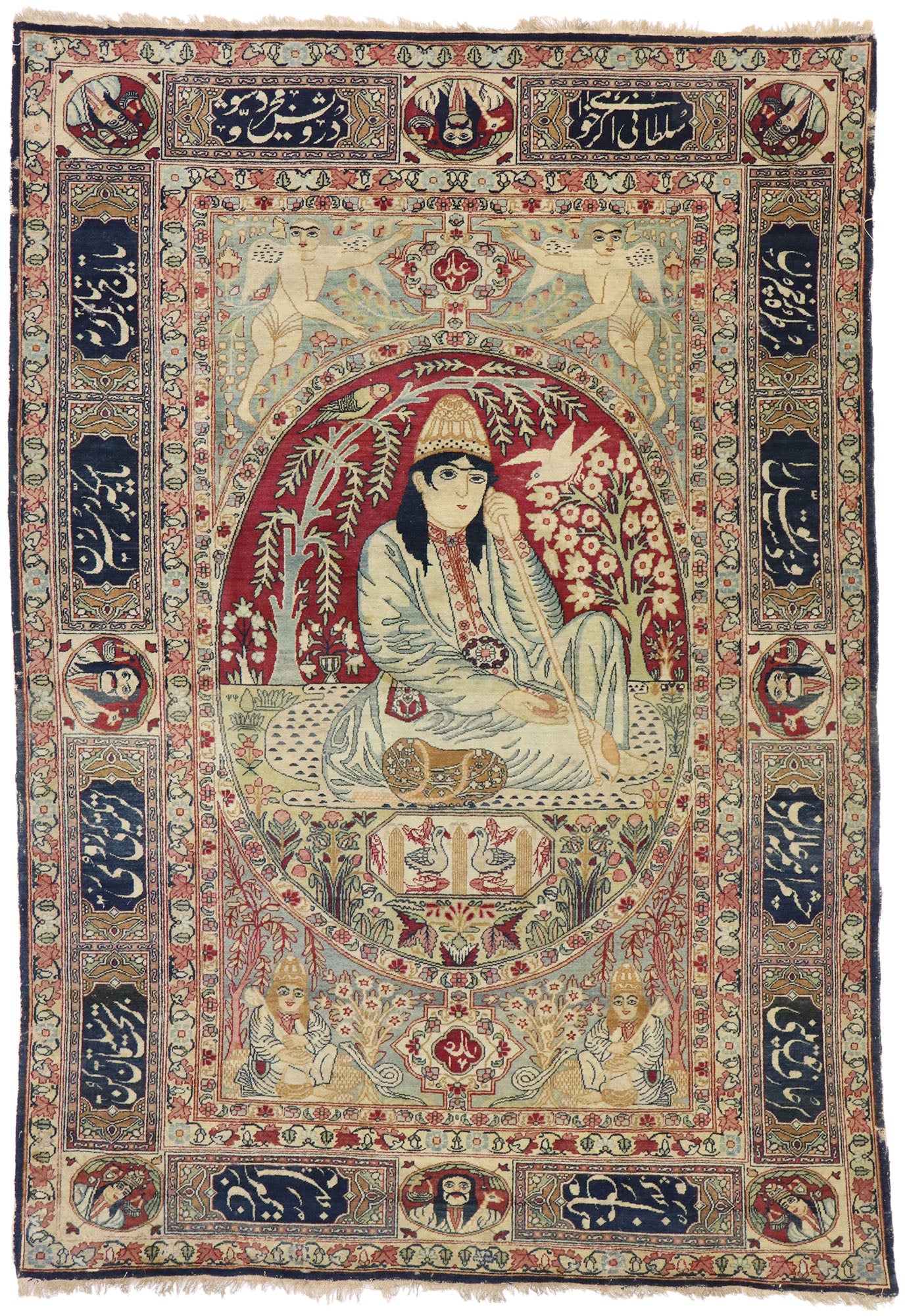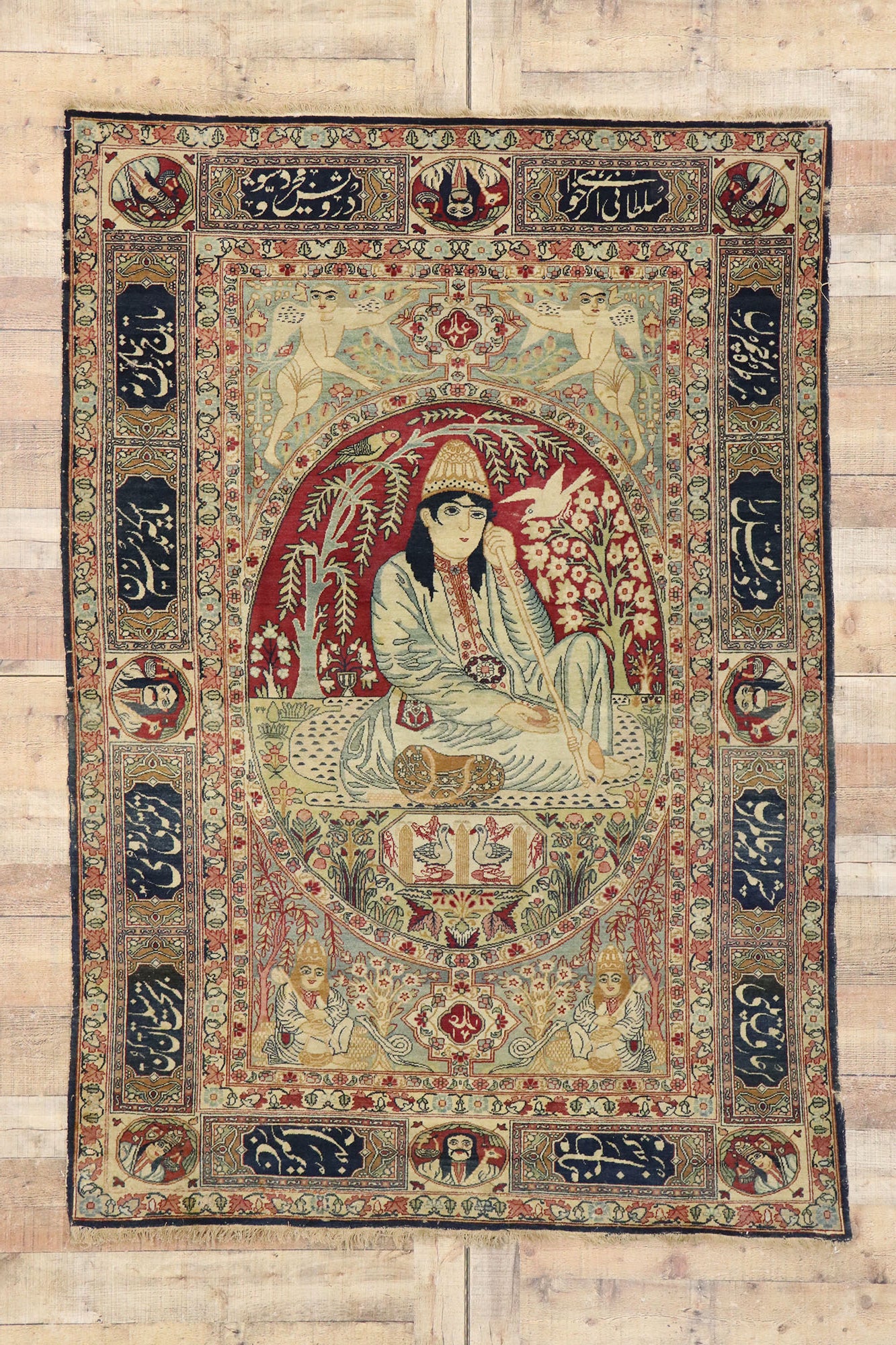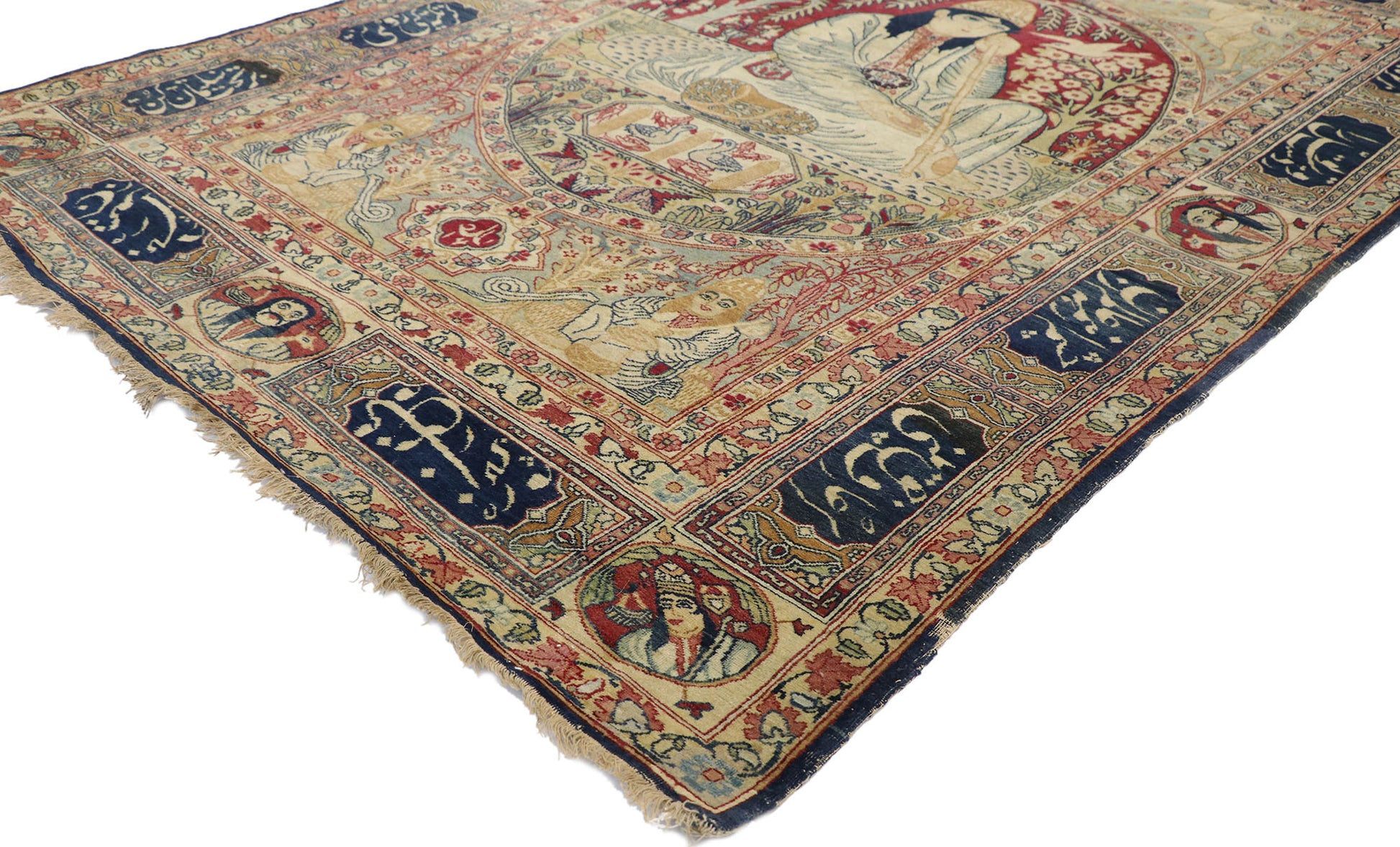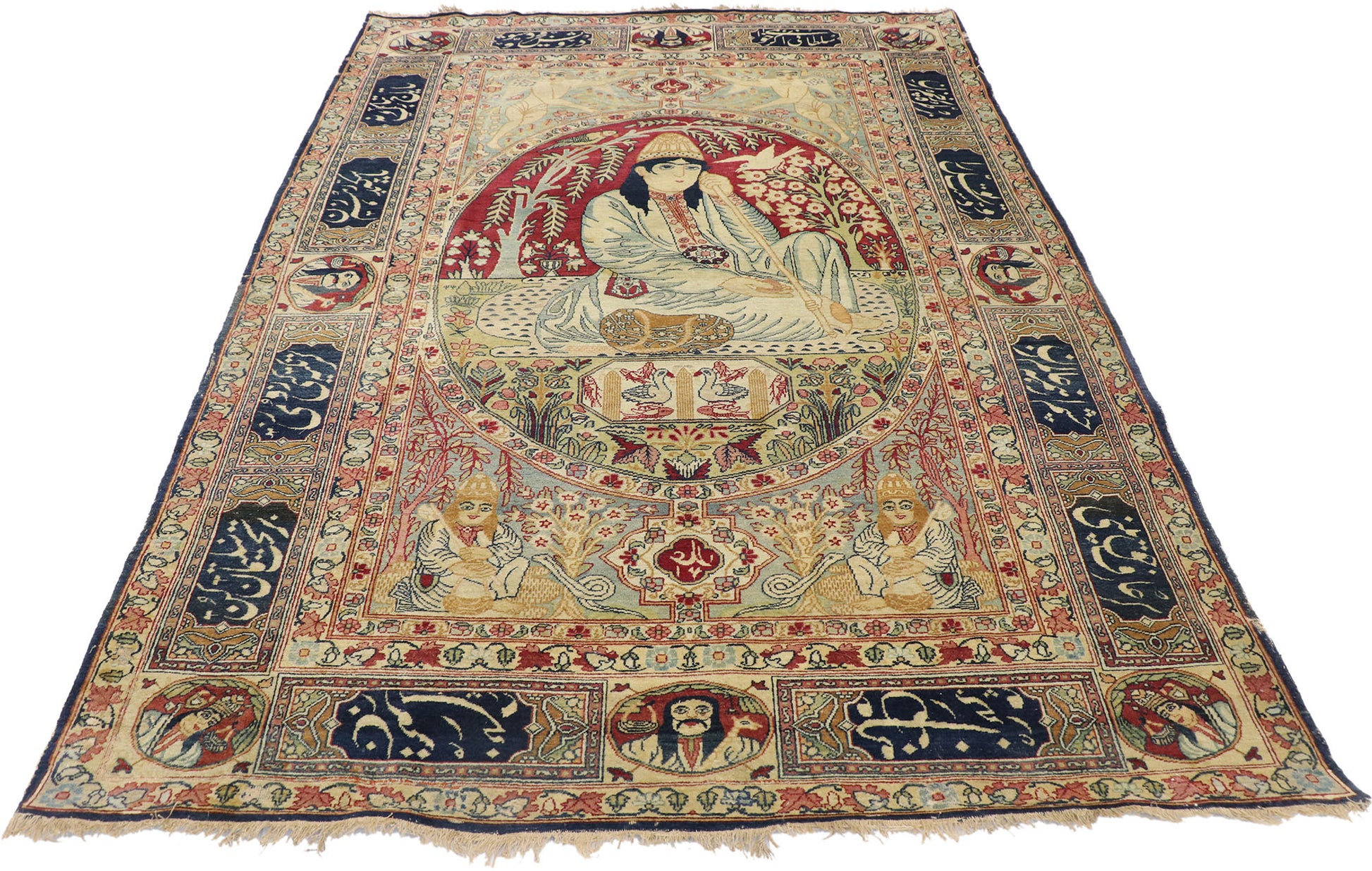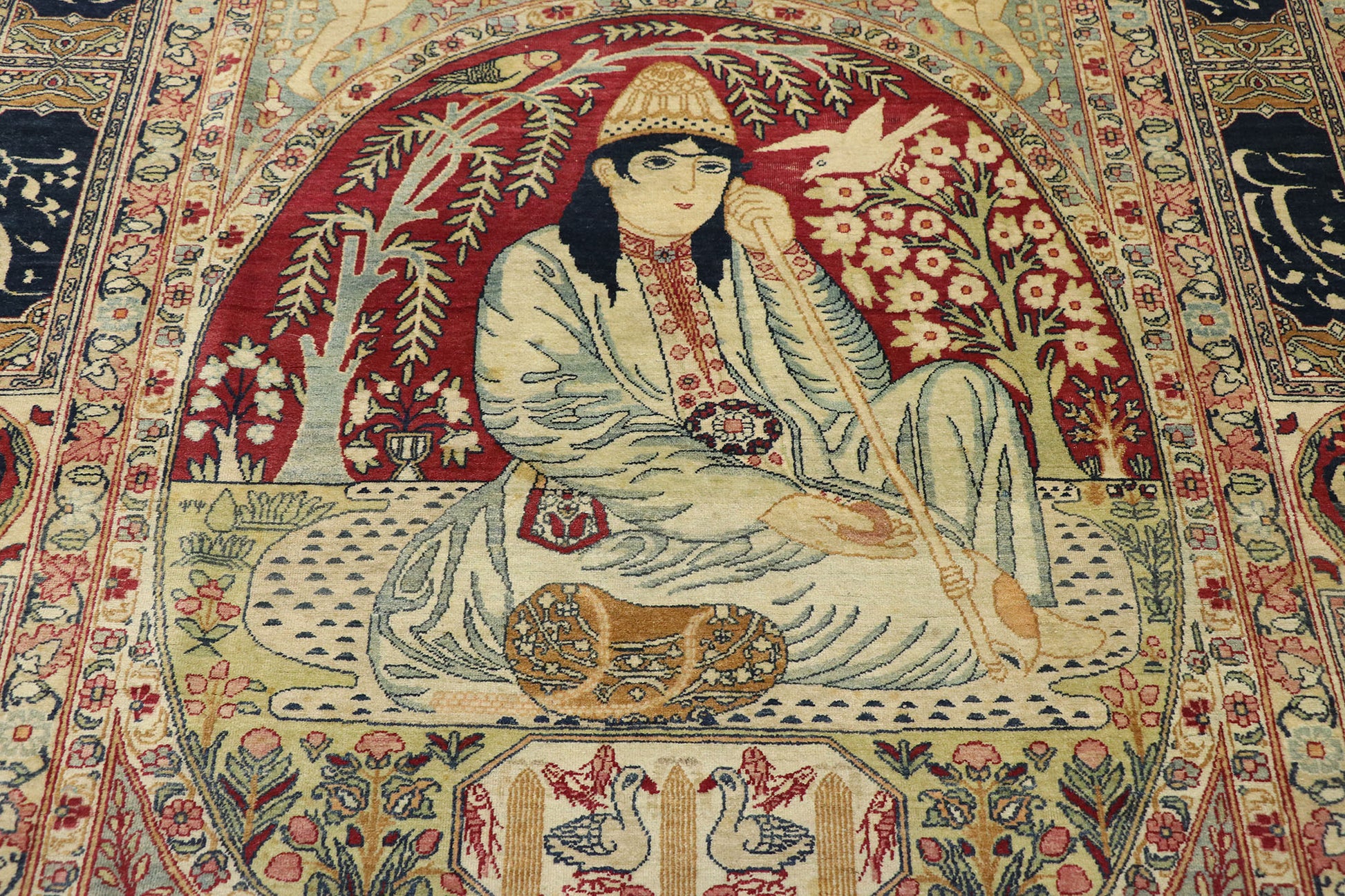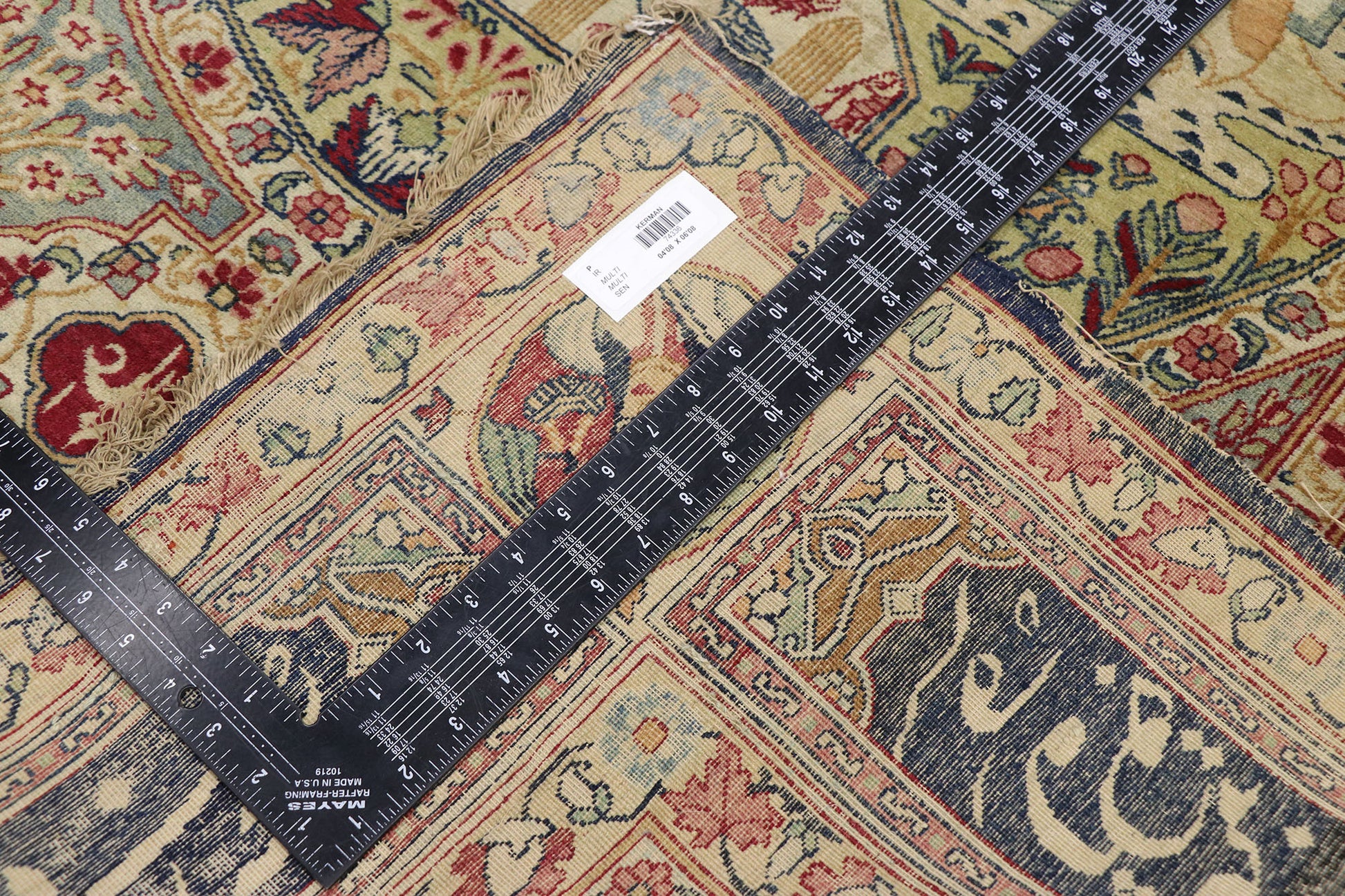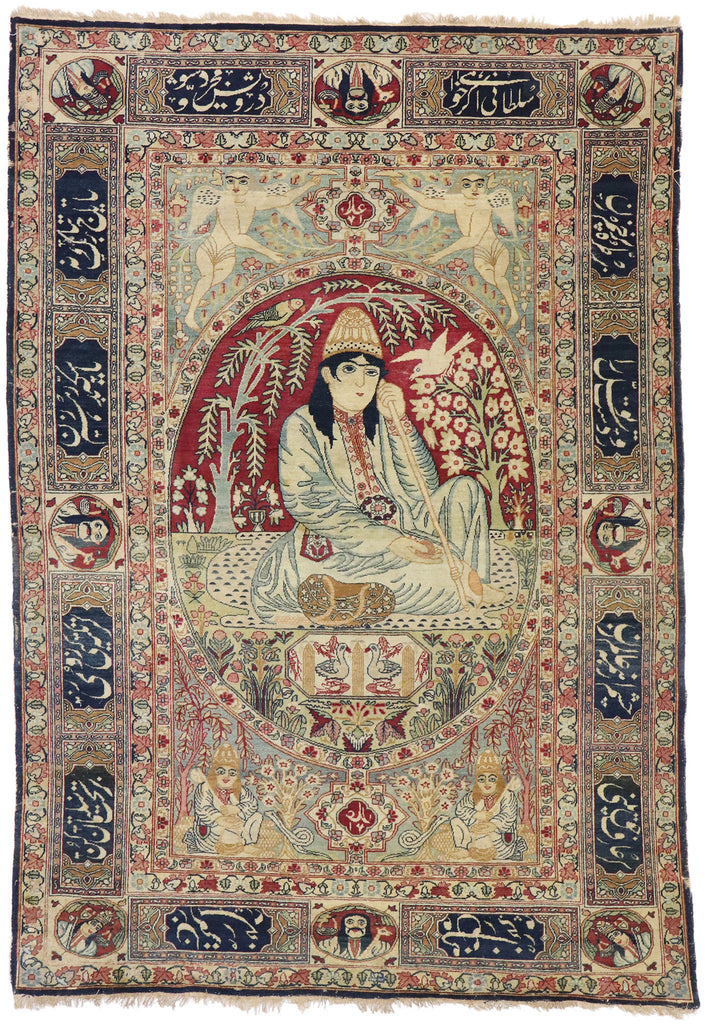5 x 7 - Beige Antique Persian Kerman Rug - 74336
5 x 7 - Beige Antique Persian Kerman Rug - 74336
Add Rug Pad
Out of stock
Rug Details
Delivery / Returns / Payment
Shipping Insured worldwide delivery. Most in-stock rugs leave our Dallas warehouse within 2 business days.
Returns Item must arrive in the original condition with tags attached. Return freight & insurance are the customer’s responsibility. We accept:
● 10-day returns for standard purchases
● 3-day returns for promotional-sale items
Refunds exclude outbound shipping & handling.
Payment Checkout online with all major cards, or call (214) 651-7847 to pay by phone. Checks are welcome; we ship once funds clear.
Trade Clients Qualified trade accounts may request rugs on approval—simply choose “Trade Approval” at checkout and we’ll arrange two-way logistics.
Care Instructions
● Vacuum with the beater bar off and always in the direction of the pile.
● Rotate 180° every 6 months for even wear and sun-fade balance.
● Blot spills immediately with a white cloth—never rub.
● Use a breathable rug pad to prevent slipping and fiber stress.
● Schedule a professional hand-wash every 3–5 years (sooner for high-traffic or pets).
Need in-depth guidance? See our full Rug Care Guide.
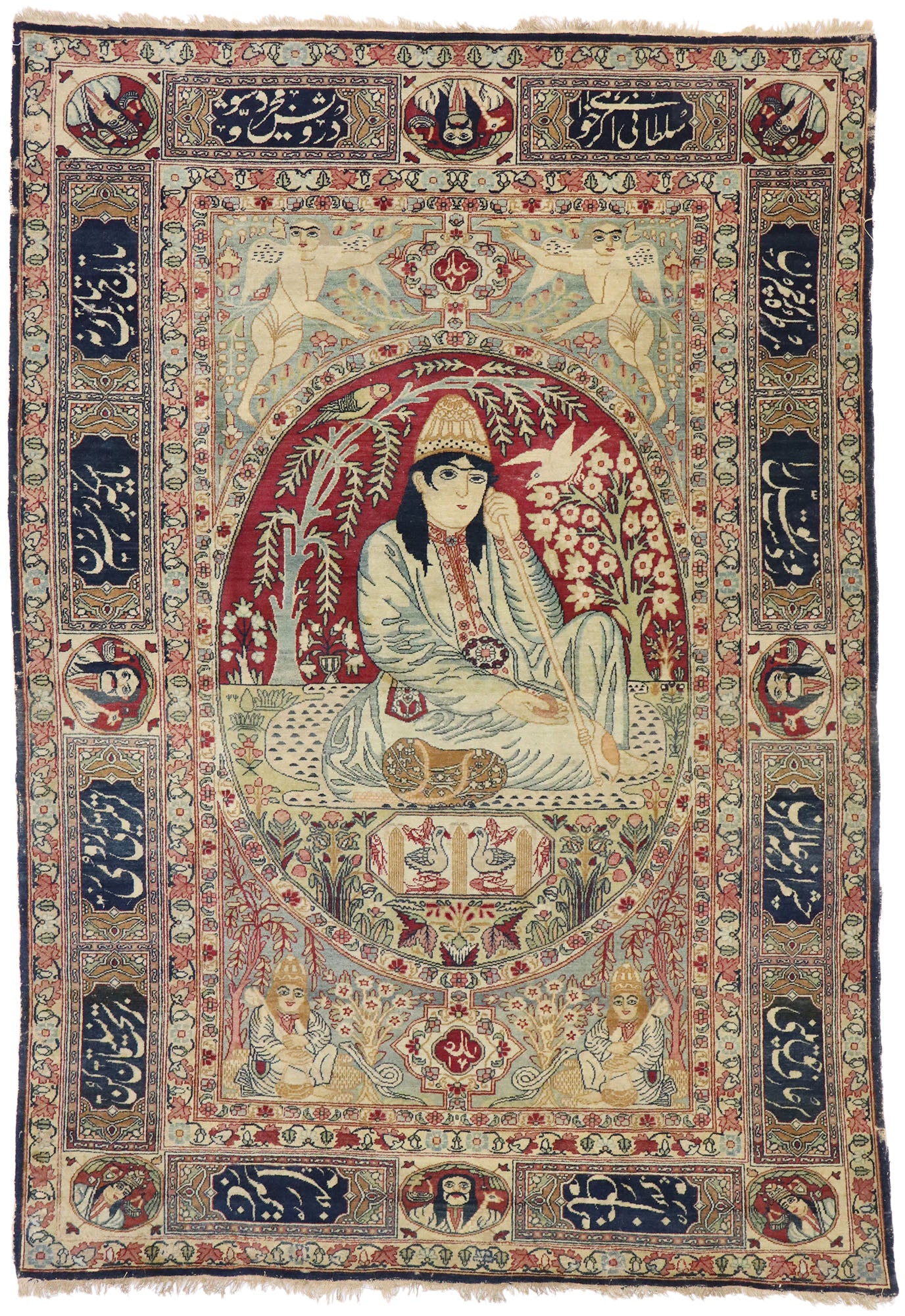
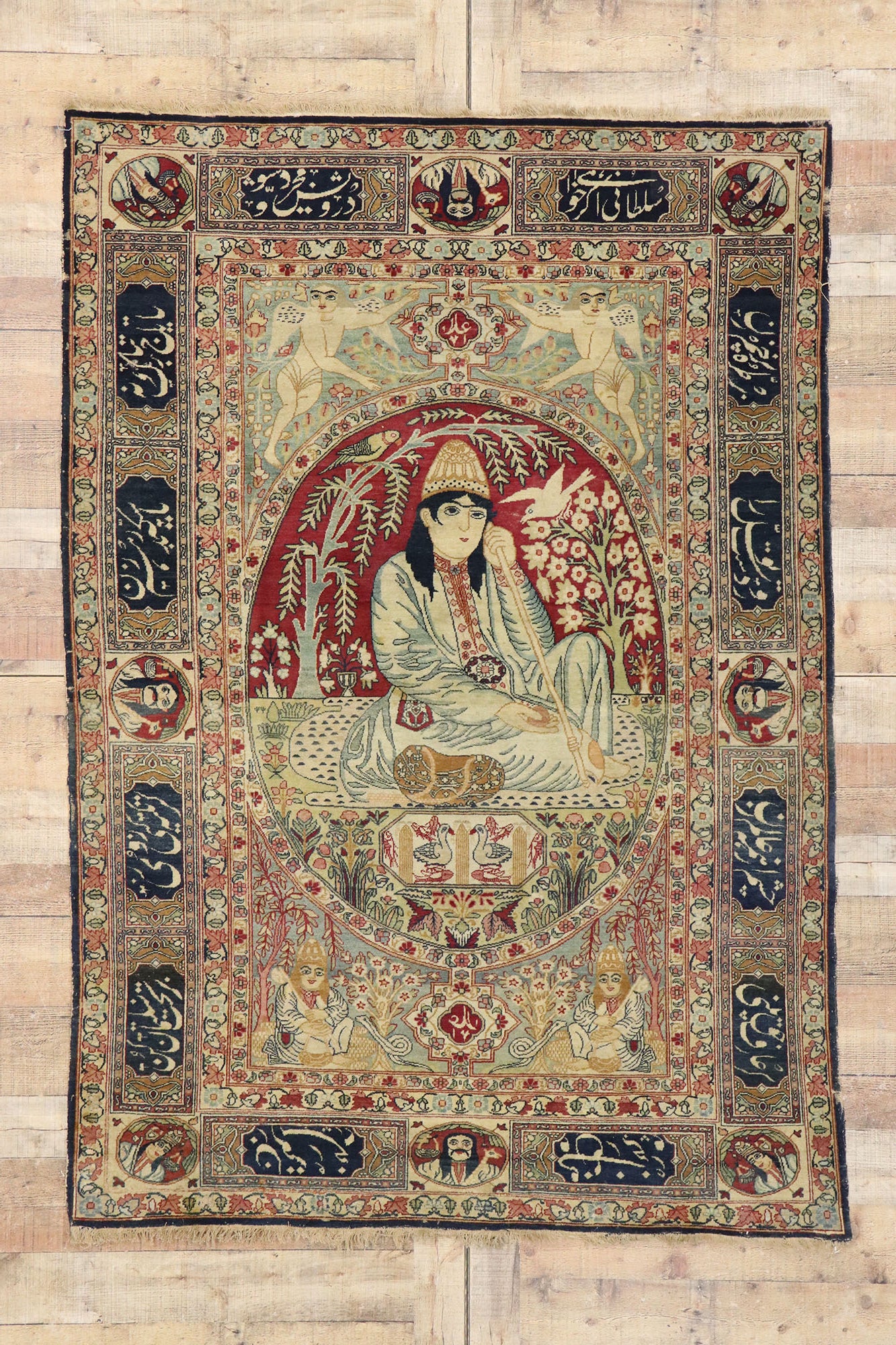
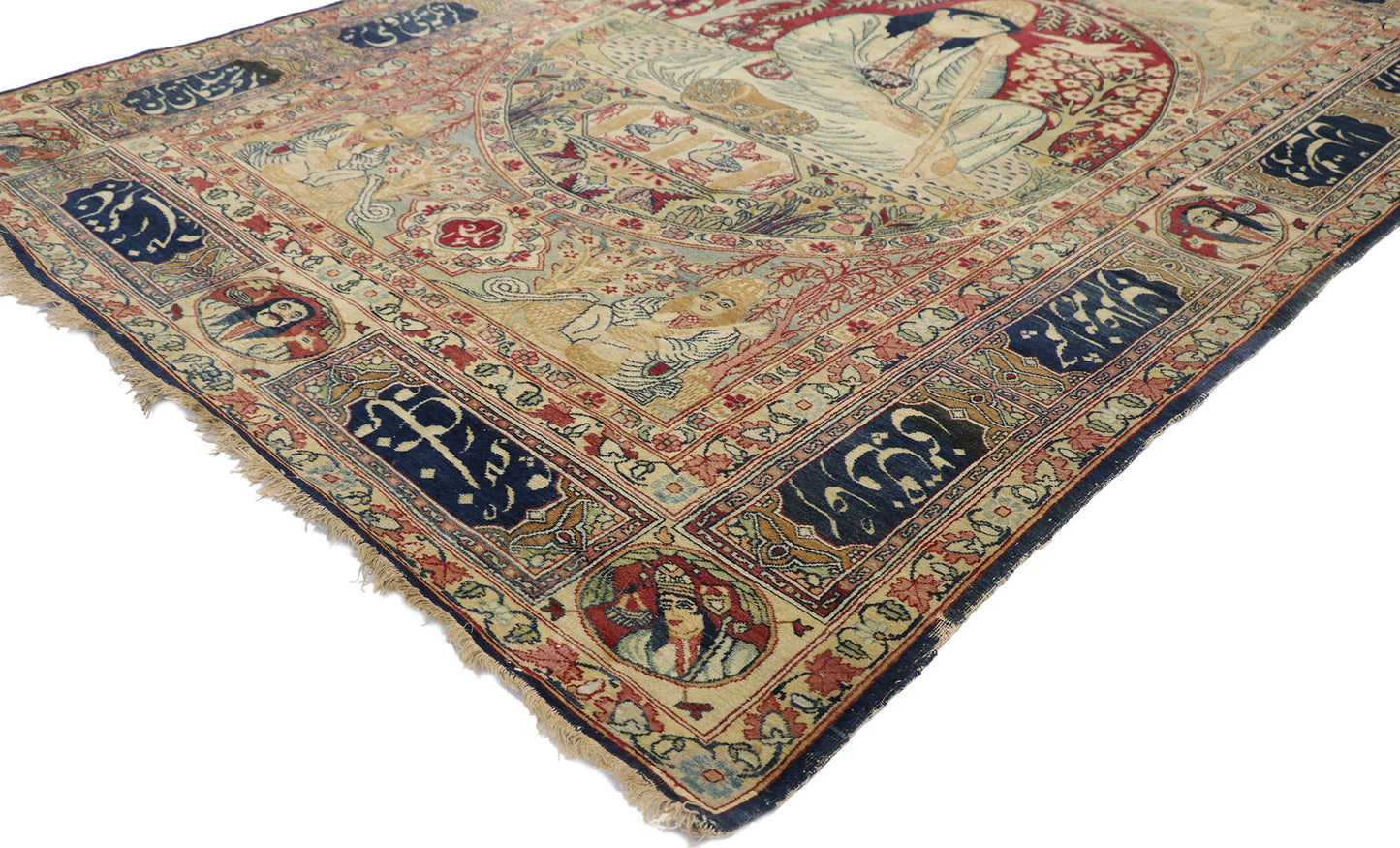
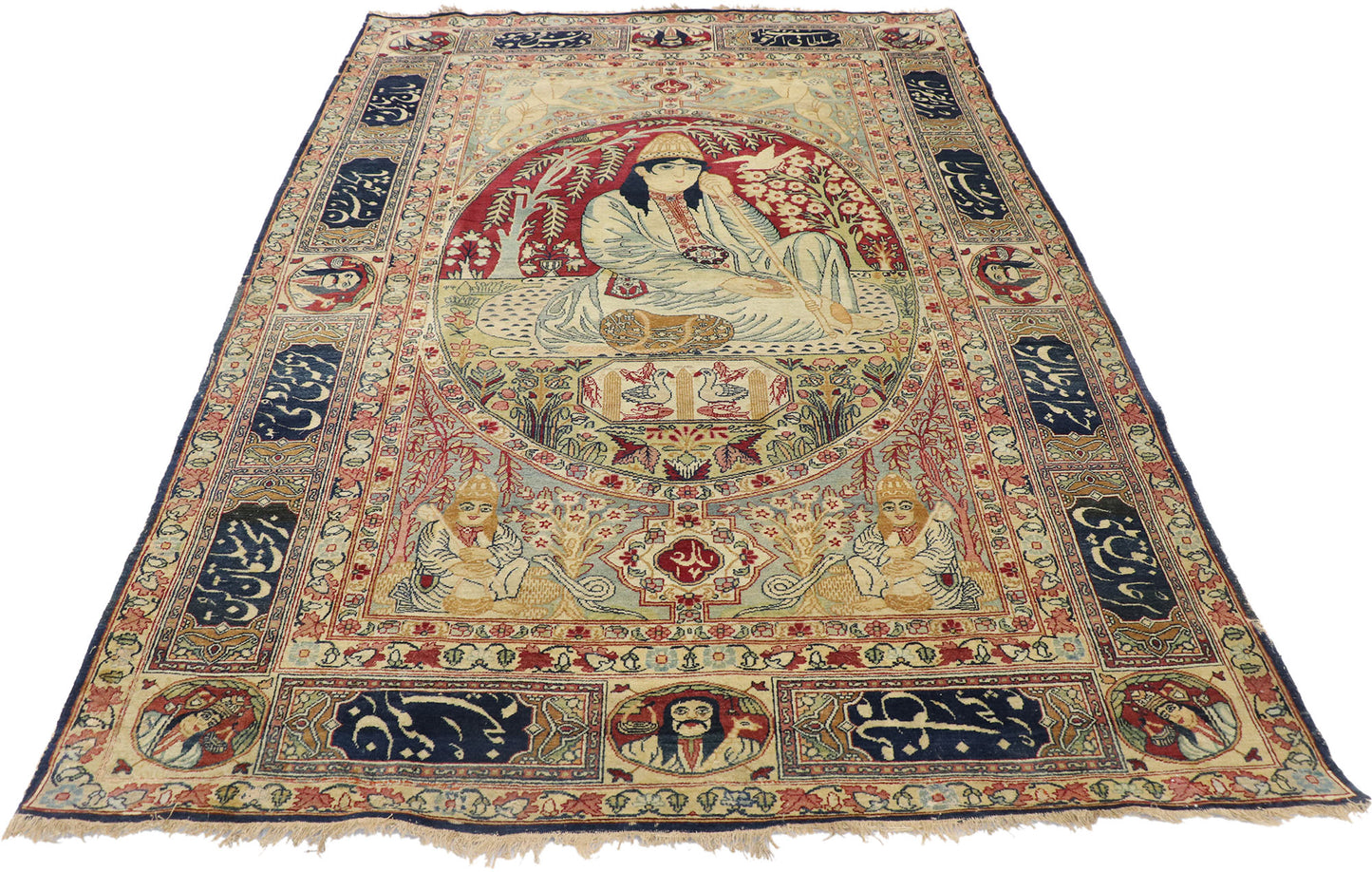
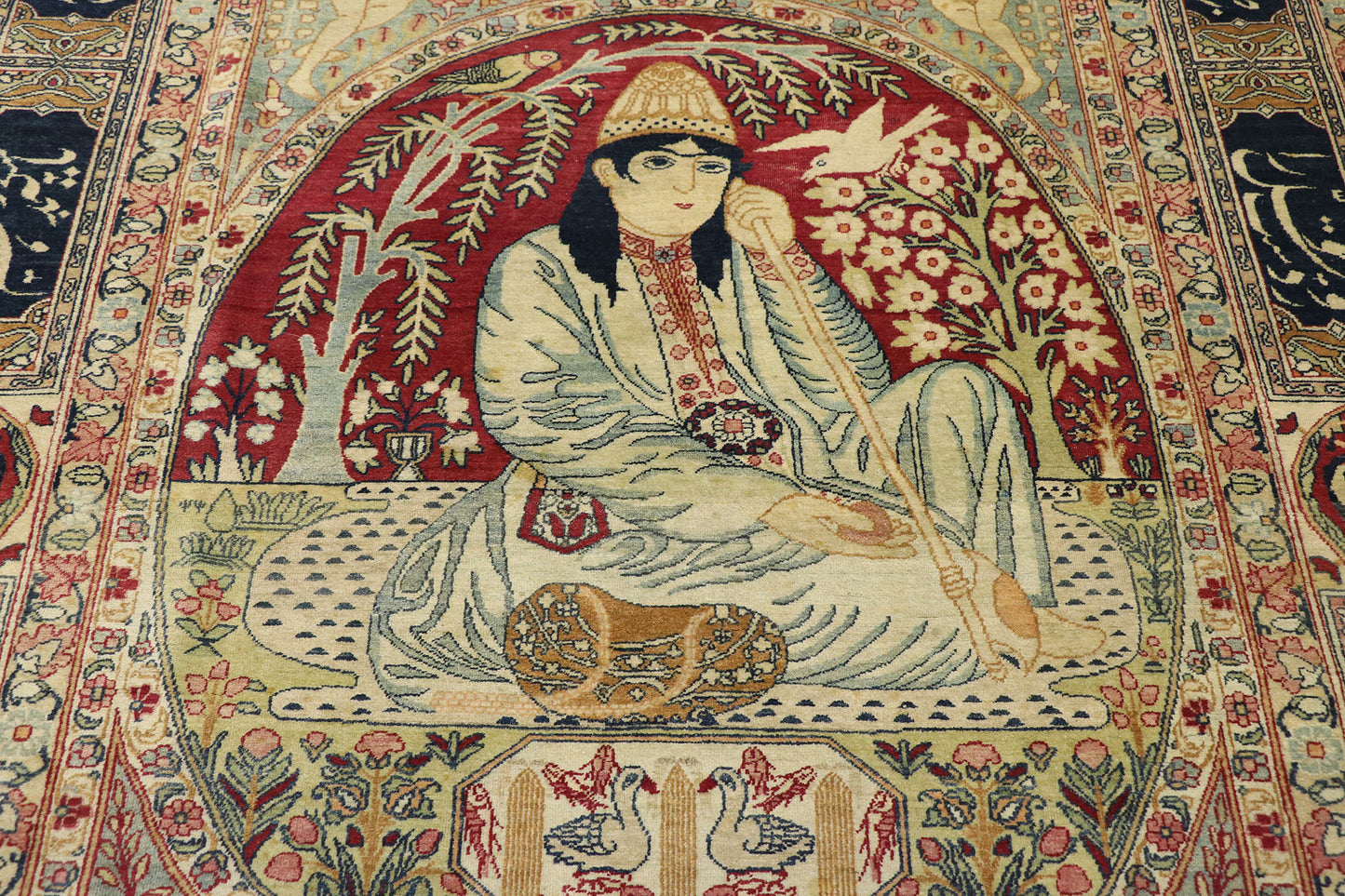
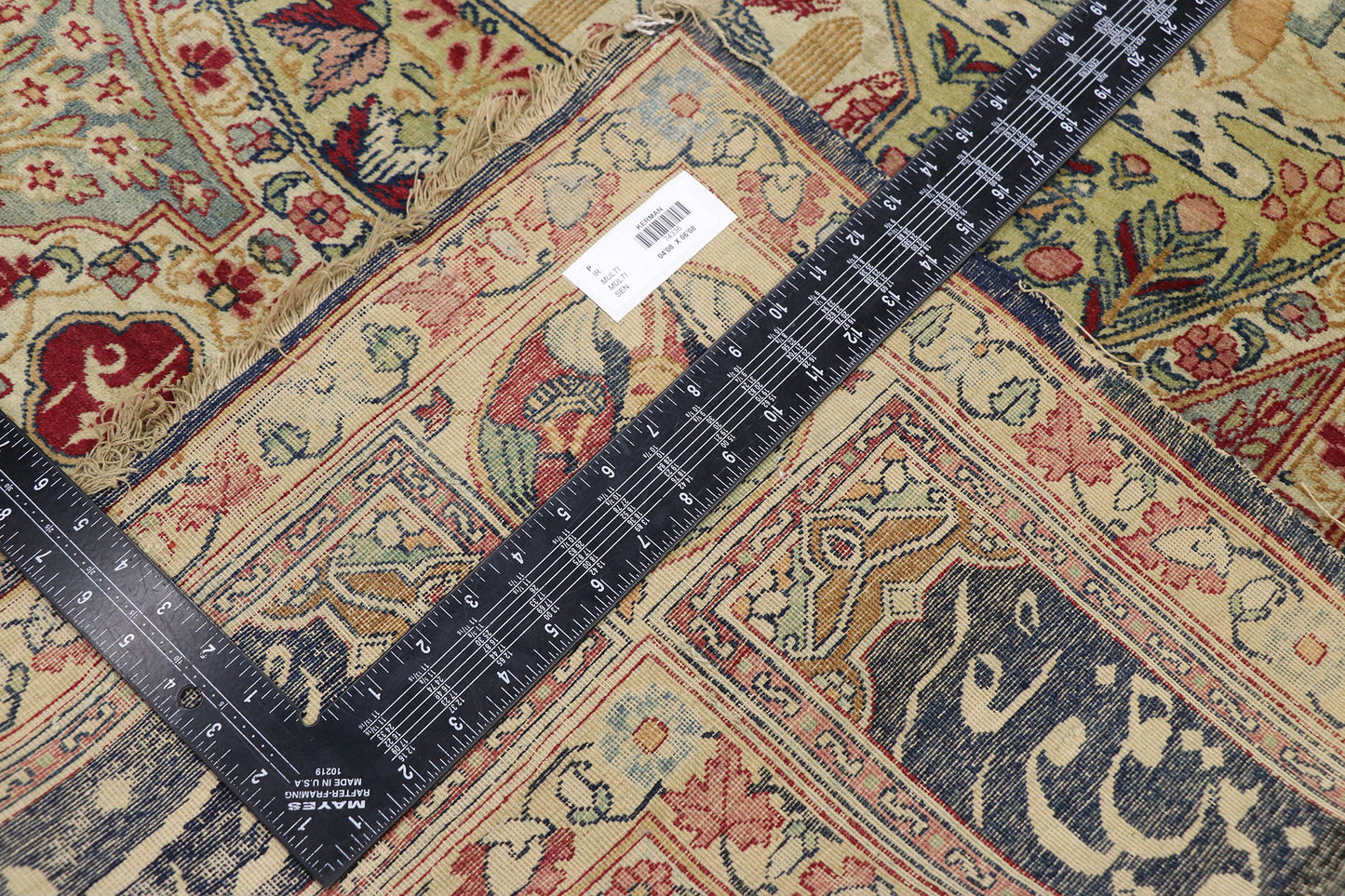
Inquiry
Please send us a message for pricing and questions regarding this product!
Description:-
74336 Antique Persian Kerman Pictorial Rug, 04'08 x 06'08.
Antique Persian Kerman pictorial rugs depicting scenes of a dervish with his kashkul under a willow tree in a garden are rare and revered for their intricate detail and symbolic depth. These rugs typically feature a central figure of a dervish, clad in traditional Sufi attire with a flowing robe and distinctive headgear, situated amidst a lush garden or courtyard setting adorned with a willow tree, flowers, and sometimes birds. Symbolically, the dervish's kashkul, used for collecting alms, symbolizes humility and detachment from material possessions, embodying Sufi ideals of spiritual devotion and simplicity. Enhanced by rich colors, intricate floral borders, and occasionally inscriptions from Persian poetry, these rugs showcase exceptional craftsmanship typical of Kerman rugs, known for their fine weave and high knot density, ensuring both artistic beauty and cultural significance as cherished pieces of Persian carpet weaving tradition.
Drawing inspiration from Nur Ali Shah, this hand-knotted wool antique Persian Kerman rug presents an enchanting pictorial scene featuring a dervish beneath a serene willow tree. Amidst a garden adorned with vibrant flowers, the charismatic dervish sits peacefully on a leopard skin, his Kashkul, or 'Begging Bowl', placed beside him. The composition is meticulously detailed, capturing the essence of nature with finely rendered animals, trees, and blossoms. Intricately woven cartouches of Mostaq Ali Shah add depth and perspective to the idyllic setting, while animated angels, graceful ducks, and elegant birds imbue the scene with lifelike charm, weaving together an enchanting and heavenly narrative. Every detail, from the smallest aspects outlined in contrasting hues to the subtle variations of color, creates a mesmerizing visual effect that speaks to the rug's exquisite craftsmanship and Persian artistic dedication.
The term 'dervish', derived from Persian, refers to individuals who follow the ascetic path of Sufi Muslim traditions, dedicated to spiritual enlightenment and closeness to Allah. Known for their austere lifestyle and vow of poverty, dervishes embody ideals of tranquility, love, and harmony through practices such as dhikr and Sema, associated famously with Rumi. Their spiritual journey involves relinquishing worldly attachments to achieve a state of ecstatic trance, aiming to attain divine union. This cultural and spiritual richness infuses the dervish motif on the Kerman rug, portraying not just a figure but a symbol of profound spiritual devotion and contemplation, resonating deeply within Persian artistic traditions.
This extraordinary Persian pictorial rug exemplifies the meticulous craftsmanship and cultural significance inherent in Persian carpet weaving. With its vibrant colors and refined design, it not only enhances the beauty of opulent period interiors but also serves as a testament to the enduring legacy of Persian artistic creativity and devotion to craftsmanship.
- Abrash.
- Hand knotted wool.
- Made in Iran.
- Measures: 04'08 x 06'08.
- There is little moth damage on the edges and backside.
- Date: 1880's. Late 19th Century.
Faq
Collapsible content

Do you offer rug-related services?
Yes, Esmaili Rugs offers several services to maintain and enhance your rugs.
Do you have a trade program for professionals?
Yes, Esmaili Rugs has a Trade Program designed for interior designers, architects, and other trade professionals. This program offers exclusive benefits and services tailored to professional needs.
How can I contact Esmaili Rugs for inquiries or support?
You can reach out through the "Contact Us" page on their website. Additionally, Esmaili Rugs is active on social media platforms like Facebook and Instagram, where you can connect and stay updated on their offerings.
Can I schedule an appointment for personalized assistance?
Absolutely. Esmaili Rugs offers concierge appointments with their internationally respected rug expert team. This service is ideal for collectors, interior designers, and anyone seeking personalized guidance.
What types of rugs does Esmaili Rugs offer?
Esmaili Rugs provides a diverse selection of rugs, including Moroccan, Turkish, Persian, Oushak, Chinese, and Tapestries. These are available in various sizes such as small, medium, large, extra-large, runners, round, square, and custom dimensions.
